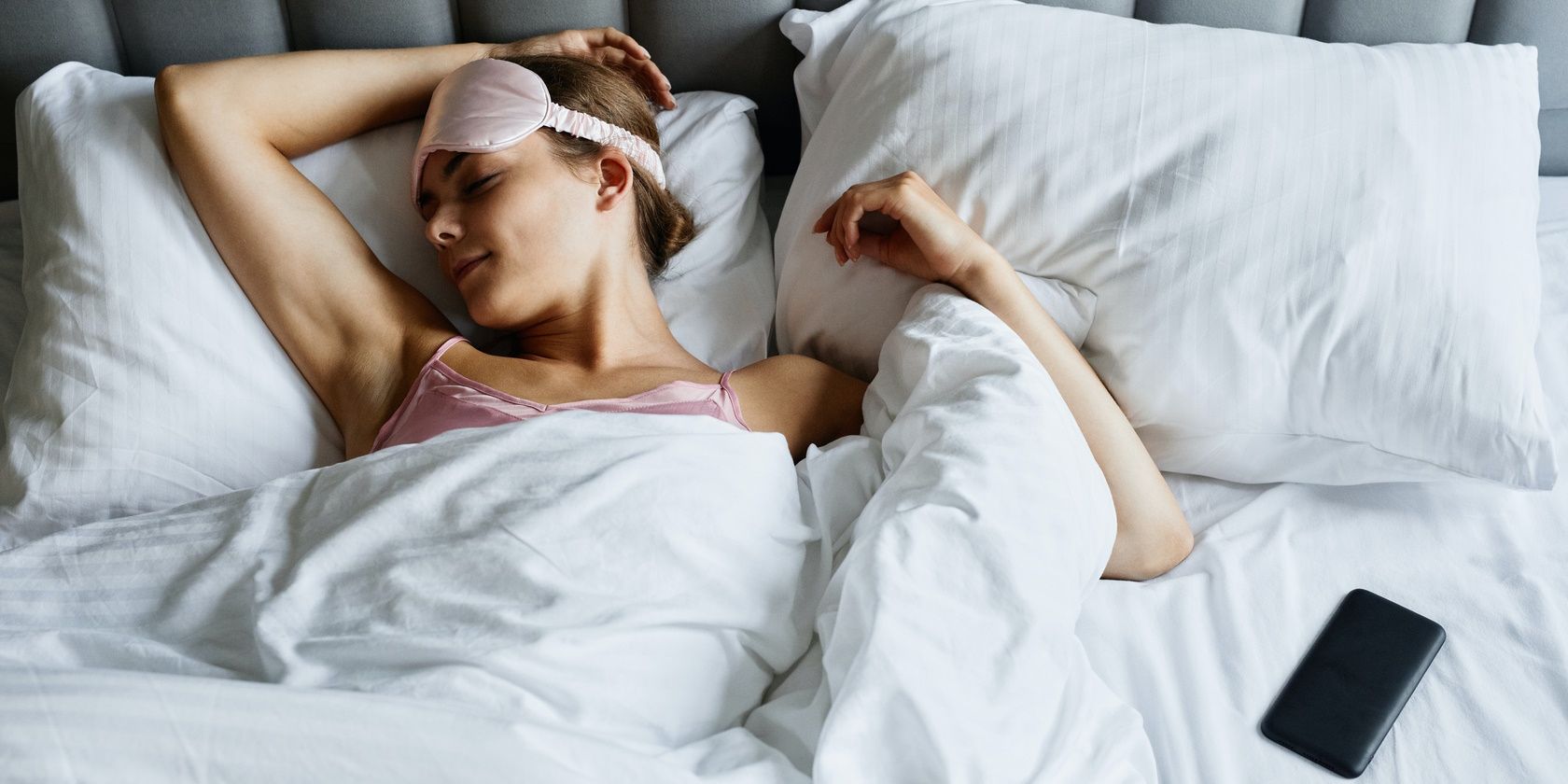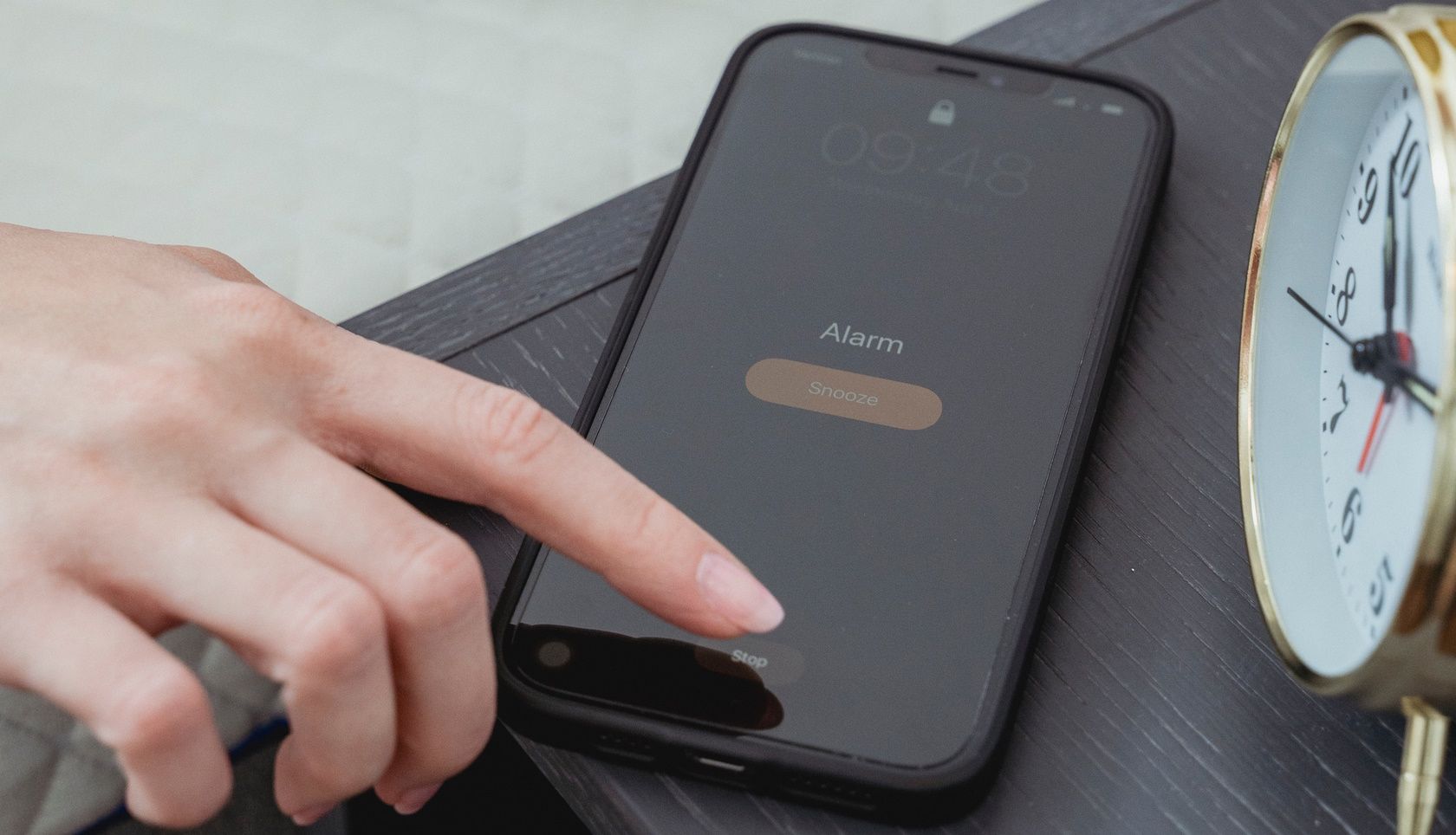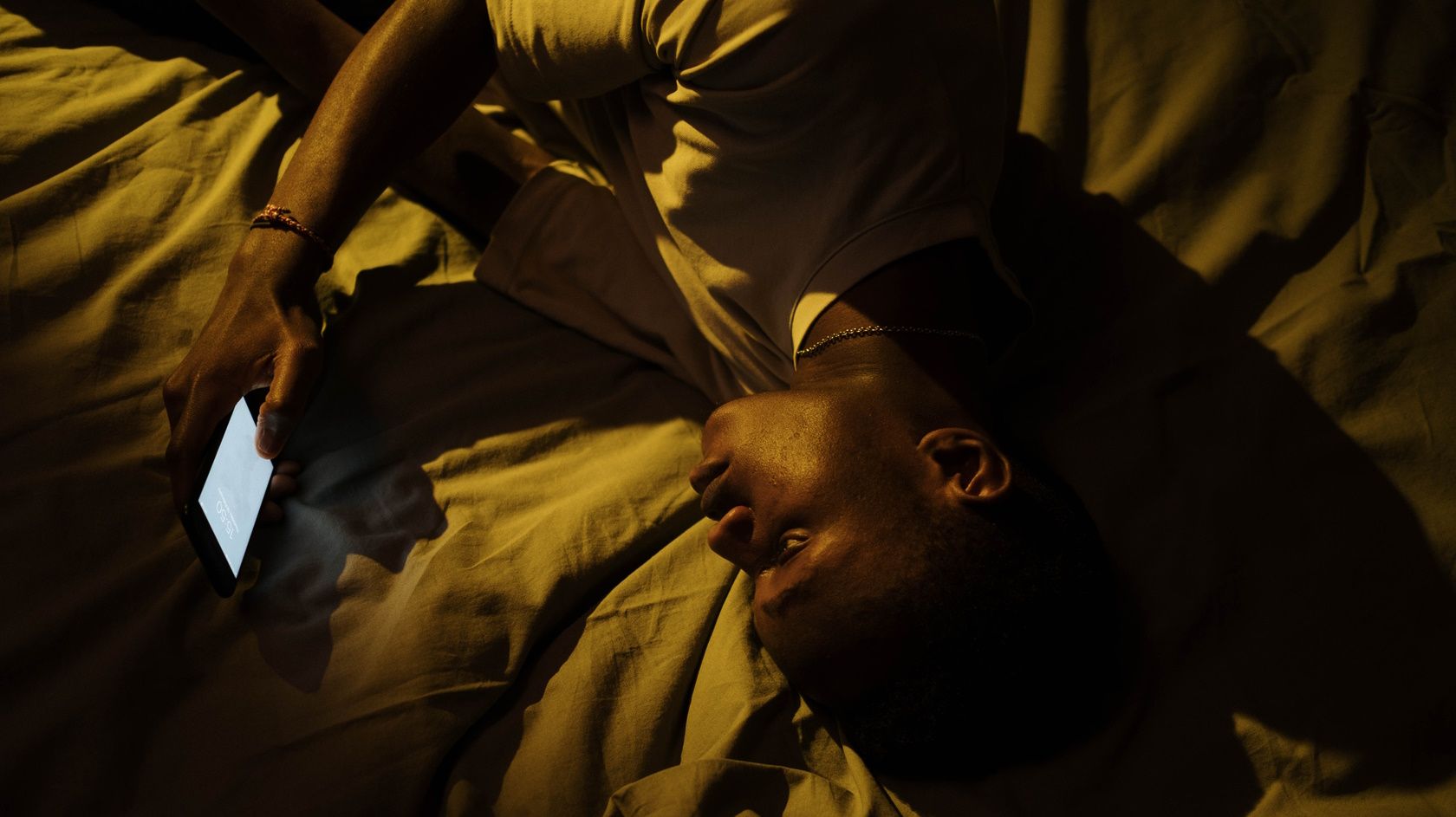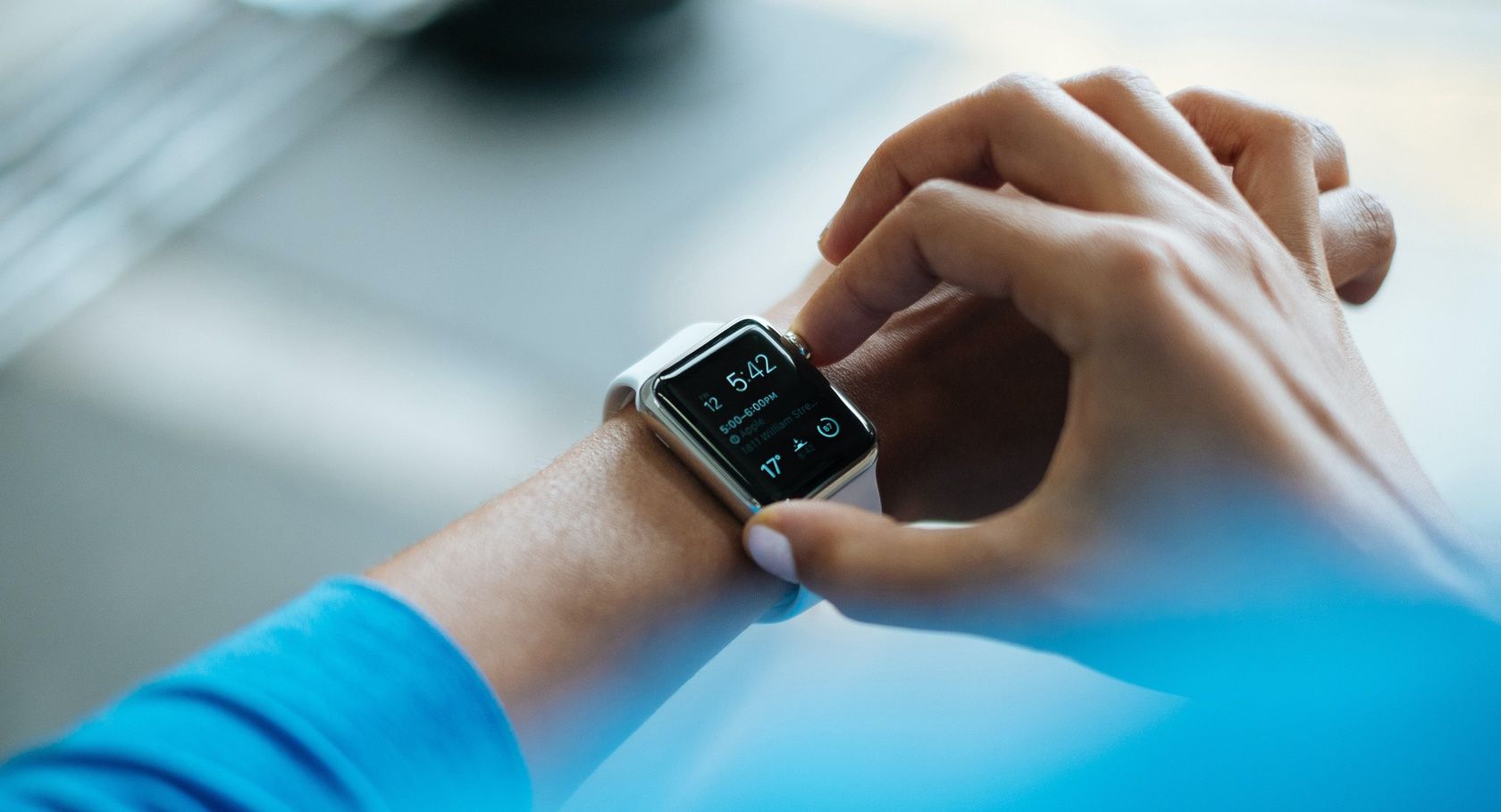Sleep is probably the most important part of your health and wellness, yet so many people struggle to get a good night's rest. If you want to reap the benefits of sleep, which include improved concentration, a boosted mood, and reduced stress levels, technology may be the solution.
Sleep tracking apps can help you better understand your sleep and get some shut-eye, but along with the pros come some cons. So what exactly is a sleep tracker app, and what do you need to know before using one?
How Do Sleep Tracker Apps Actually Work?
Unlike a wearable fitness tracker or watch that can track your sleep, most sleep tracker apps simply use your smartphone's microphone and speaker to measure and record your sleep. All you have to do is place your smartphone on your bedside table or close by before you go to sleep.
Sleep Cycle, BetterSleep, and SleepScore are some of the most popular sleep tracker apps to use. But before you start downloading and subscribing to anything, first consider these various pros and cons.
The Pros of Using a Sleep Tracker
First, let's look at the benefits of using a sleep tracker.
1. Helps You Better Understand Your Sleep Patterns
In order to improve your sleep patterns, you need to understand them. Most sleep tracker apps record an extensive amount of data about your sleep, such as the time you fell asleep, the time you woke up, your sleep regularity, and sleep duration.
This important sleep data can reveal in detail how your sleep patterns affect you throughout the day, including your mood, productivity, et cetera.
2. Tracks Your Different Sleep Phases
There are generally four sleep phases: awake, light, deep, and REM. Each phase plays an essential part in how you feel when you wake up. Sleep tracker apps often provide a breakdown of your different sleep phases, including how long you slept in each phase.
Some sleep tracker apps also use your sleep phases along with a smart alarm to wake you up at the perfect time, which you can learn more about below.
3. Captures Possible Sleep Interruptions and Disruptions
In general, sleep tracker apps use your smartphone's microphone and speaker to record various sounds throughout the night. When you wake up, you can analyze the recordings to see if they correspond with any sleep interruptions or disruptions.
As an example, sleep recordings can help you catch possible sleep problems such as excessive snoring. In addition, some sleep trackers measure the ambient noise in your bedroom to see if you have the ideal sleeping environment.
4. Gently Wakes You Up at the Ideal Time
As mentioned above, sleep trackers can use your sleep phases along with an in-app smart alarm clock to gently wake you up at the optimal time.
Waking up at just the right time—preferably during your light sleep phase—can help you feel well-rested and less groggy in the morning. In addition, several sleep tracker apps offer a wake-up window that gradually wakes you up over a certain time phrase.
5. Convenient Compared to Wearing a Sleep Tracker Device
While it's likely that wearables track your sleep better than sleep tracker apps, it's not always convenient or comfortable to wear one to bed.
Some sleep tracker devices are clunky and awkward, which can lead to restless nights and compromise your sleep instead of improving it. Almost everyone has a smartphone anyway, so it's easier to simply set your smartphone close by and go to sleep.
The Cons of Using Sleep Trackers
Despite the benefits of using sleep trackers, there are several drawbacks that you need to keep in mind.
1. Hinders Sleep More Than It Helps
Sure, you can use a sleep tracker app to track multiple aspects of your sleep, like your sleep phases, sleep debt, and sleep goals. But what does all that sleep data mean, and how do you use it? All the features, graphs, and records can be overwhelming and wreck your sleep rather than improve it.
Use your sleep tracker app to give you more of a general idea of your sleep rather than solely relying on it. Don't forget that what your body is telling you about your sleep is the most important thing to keep in mind.
2. Promotes Nighttime Screen Use Before Bed
Using your smartphone right before bedtime can be harmful. It's best to limit your screen time, as artificial light can disrupt your circadian rhythm. There are, though, some mobile apps that can promote a healthy circadian rhythm.
If you do want to use a sleep tracker app, consider keeping your bed a phone-free zone until you're ready to sleep. Then collect your phone, switch on your sleep tracker, and leave your phone alone for the rest of the night.
3. Incorrect or Unreliable Sleep Tracking Data
Can you trust some of the sleep record details that sleep trackers present you with at the end of the night? If a sleep tracker app fails to track your sleep accurately, then it's hard to improve your sleep.
That's why it's recommended that you do a lot of research about a sleep tracker app before using it. Perhaps, try a couple of apps out before committing to one. Analyze the sleep data it gives you and see how it compares to how you actually slept.
Besides your sleep tracker, you can find several apps for tracking and improving your rest.
4. Creates an Unhealthy Sleep Obsession
Tracking your sleep data is helpful, particularly if it helps you discover a specific issue. For instance, maybe you frequently wake up at the same time every night and don't know why. Subsequently, your sleep tracker app records a loud vehicle and dogs barking during that specific time.
Unfortunately, some people can become so obsessed with tracking their sleep that it causes anxiety and insomnia. There is genuinely a condition called orthosomnia, which—according to a report in PudMed—states is a perfectionistic quest for the ideal sleep.
5. Unable to Track Heart Rate and Movements
Unlike a wearable sleep-tracking device, a mobile app can only do so much. Because you're wearing the sleep tracker on your body, it can track your breathing and heart rate. This can tell you almost exactly when your sleep phases are, as well as the exact time you fall asleep and wake up.
Movement is also an important sleep factor. A wearable device can detect movement and help you understand why you're tossing and turning. Furthermore, some wearable sleep trackers have built-in body thermometers which can tell you whether your sleeping environment is too hot or too cold.
Are Sleep Tracker Apps a Boost to Your Sleep or a Burden?
There's a smartphone app for basically everything you do on a daily basis, including sleep. Sleep tracker apps give you an insight into every aspect of your sleep, from your snoring habits to your sleep phases. Yet can all this important sleep data help you get a better night's rest or cause more sleep problems?
Before you start using a sleep tracker app, it's best to go over the pros and cons. Sleep tracker apps can certainly be valid if they're developed by well-known, reliable companies. So remember to do plenty of research on a sleep tracker app before you sign up for a costly, long-term subscription.





